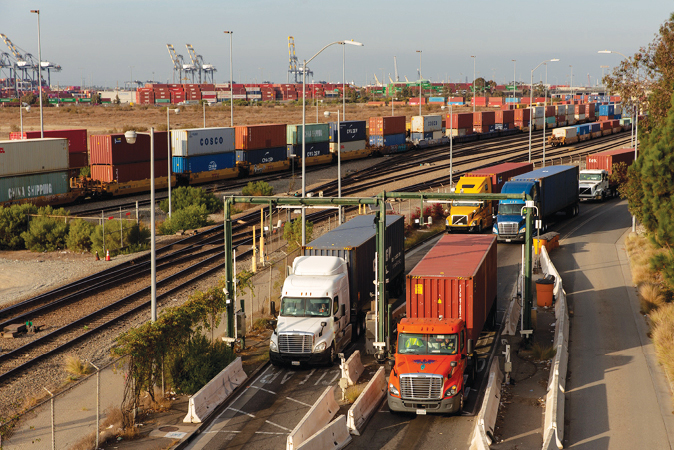|
By Amanda Hampton, Associate,
Blakey & Agnew
On February 1, the House Committee on Transportation and Infrastructure hosted its first hearing of the 118th Congress, providing insight into lawmakers' policy priorities. The hearing, titled “The State of Transportation Infrastructure and Supply Chain Challenges,” included testimony from representatives of the American Trucking Associations, Association of American Railroads, Port Houston, Hamilton Construction Company, and AFL-CIO.
Although Committee Chair Sam Graves (R-MO) did not vote for the Bipartisan Infrastructure Law (BIL), he shared his intention to focus on ensuring that funds go toward projects improving supply chain efficiency. He also emphasized the need to conduct oversight of BIL implementation to guarantee funds are spent wisely. When it comes to BIL oversight, even Democrats expressed disappointment with project funding announcements. Both Reps. Greg Stanton (D-AZ) and Val Hoyle (D-OR) expressed dissatisfaction with the projects recently selected to receive a National Infrastructure Project Assistance (Mega) discretionary grant – a program targeted toward projects that are too large or complex for traditional funding methods. Rep. Stanton specifically pointed out that 90 percent of funding went to projects East of the Mississippi River.
Committee Ranking Member Rick Larsen (D-WA) shared the Democratic priorities for the 118th Congress, including: promoting investments to create a cleaner, safer, and more accessible transportation network; ensuring investments create jobs; building community capacity as infrastructure dollars are distributed; protecting the environment; and protecting the economic sustainability and competitiveness of the U.S.
During the hearing, witnesses were asked about topics ranging from the speed of funding delivery to the impact of California’s Assembly Bill 5 on supply chains. Legislators continued to press on the impact of inflation on supply chains and infrastructure projects as well as inefficiencies within the environmental permitting process. A reoccurring topic from last year’s BIL implementation hearings, stakeholders and the majority party voiced disagreements regarding a 2021 Federal Highway Administration memo, which encouraged implementing BIL funding with a focus on improvements to existing infrastructure rather than capacity expansion projects.
Several committee members used the hearing to announce the issues they plan to address during the
|

118th Congress. For instance, Rep. Johnson (R-SD) shared that he plans to partner with Rep. Garamendi (D-CA) to develop legislation tackling issues that the Ocean Shipping Reform Act (OSRA), a law passed last year to improve supply chain fluidity, did not address. Rep. Donald Payne Jr. (D-NJ), the ranking member of the subcommittee on railroads, noted that he would work to provide rail employees paid sick leave – a demand made by rail employees that they ultimately did not receive during last year’s rail labor negotiations.
As Chair Graves stated during the hearing, the transportation committee is a “work committee, not a show committee.” In order to pass the reauthorizations that are due, including the Federal Aviation Administration reauthorization, water resources reauthorization, and the Coast Guard reauthorization, committee leadership acknowledged that working across the aisle will be necessary.
As the U.S. continues to transform its transportation sector with new technologies and possibilities, the Department of Transportation recently shared its upcoming research priorities when it released the Research, Development and Technology Strategic Plan for Fiscal Years 2022-2026. Serving as a guide for Federal transportation research, development, and technology deployment activities, the plan involves five primary goals – safety, economic strength and global competitiveness, equity, climate and sustainability, and transformation. The plan contains an extensive outline of the Department’s upcoming research priorities, one of which is to focus on freight planning, performance, safety, and operations by improving supply chain data collections and promoting the use of new technologies to support efficient cargo movements at ports, among many other methods. By implementing the research plan, USDOT intends to gather data to help freight planners assess the vulnerability of freight facilities and ensure that freight stakeholders will have the tools to quickly accommodate increased demand.
Blakey & Agnew, LLC is a public affairs and
communications consulting firm based in
Washington, DC.
|


